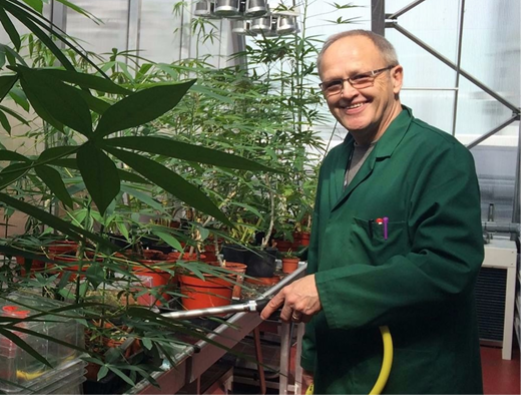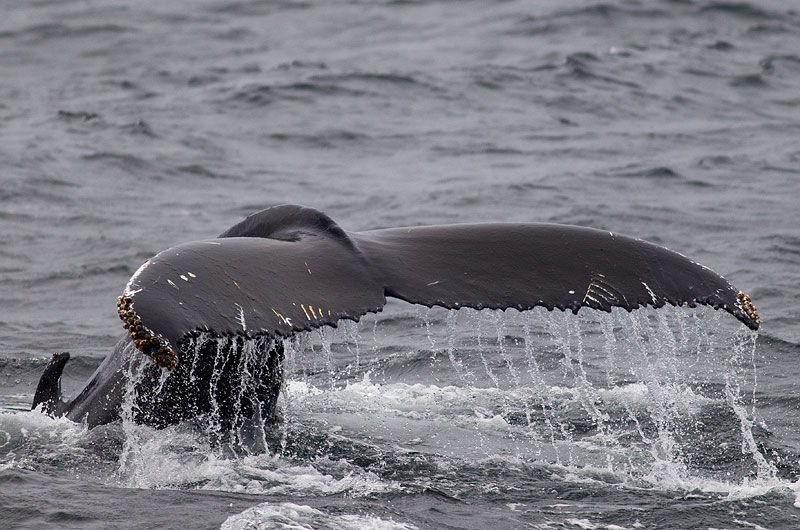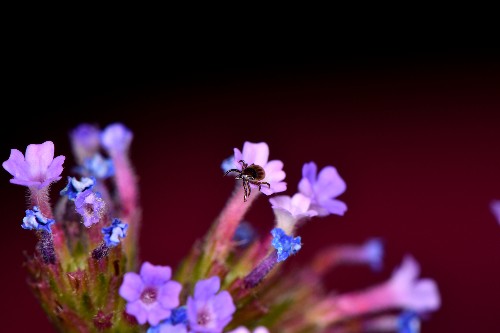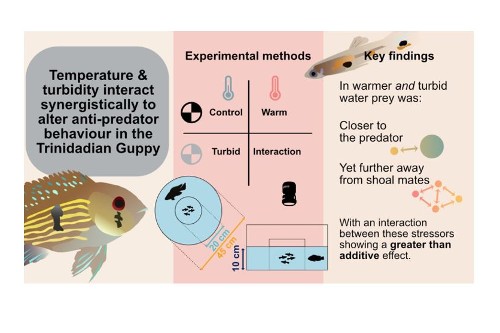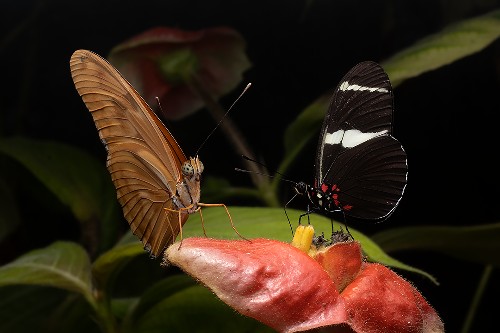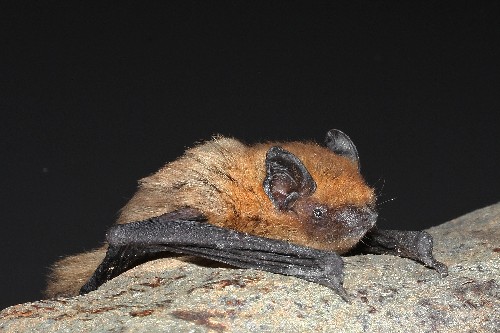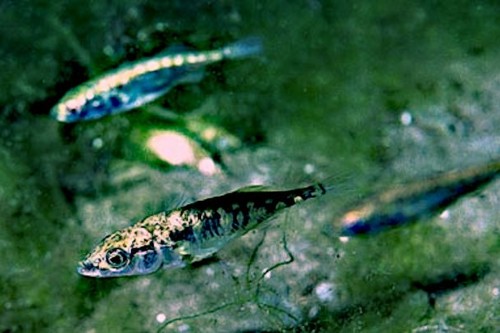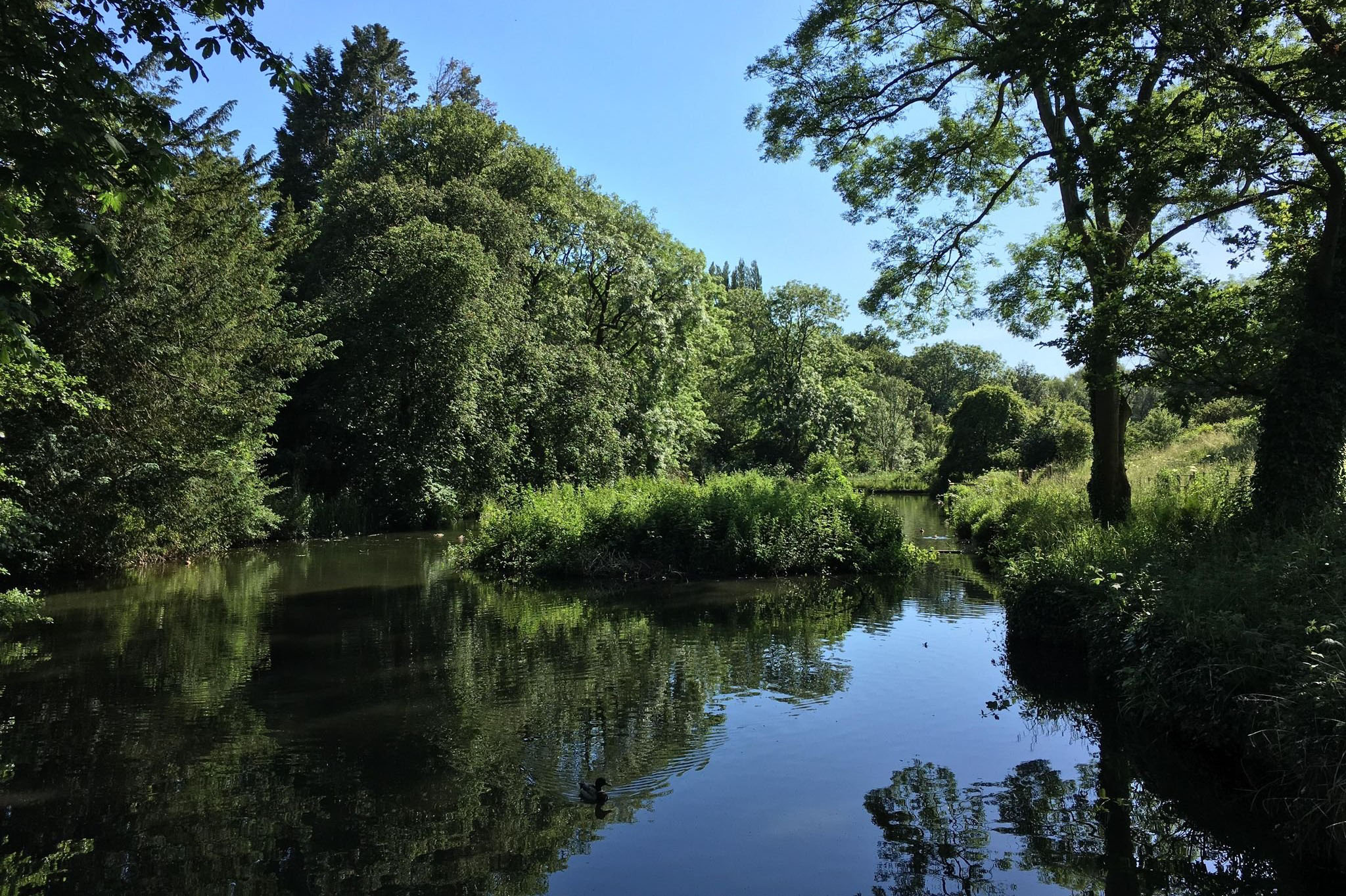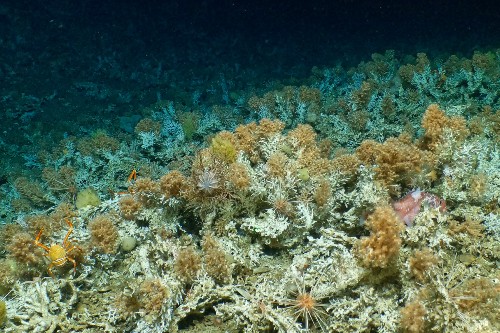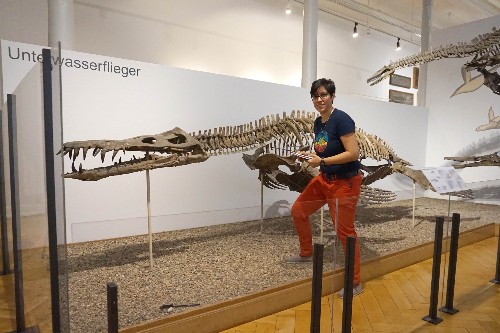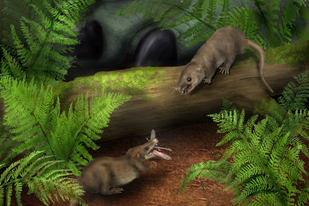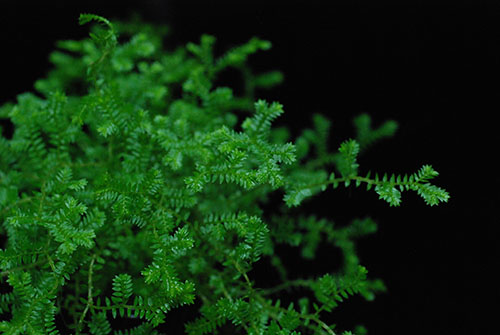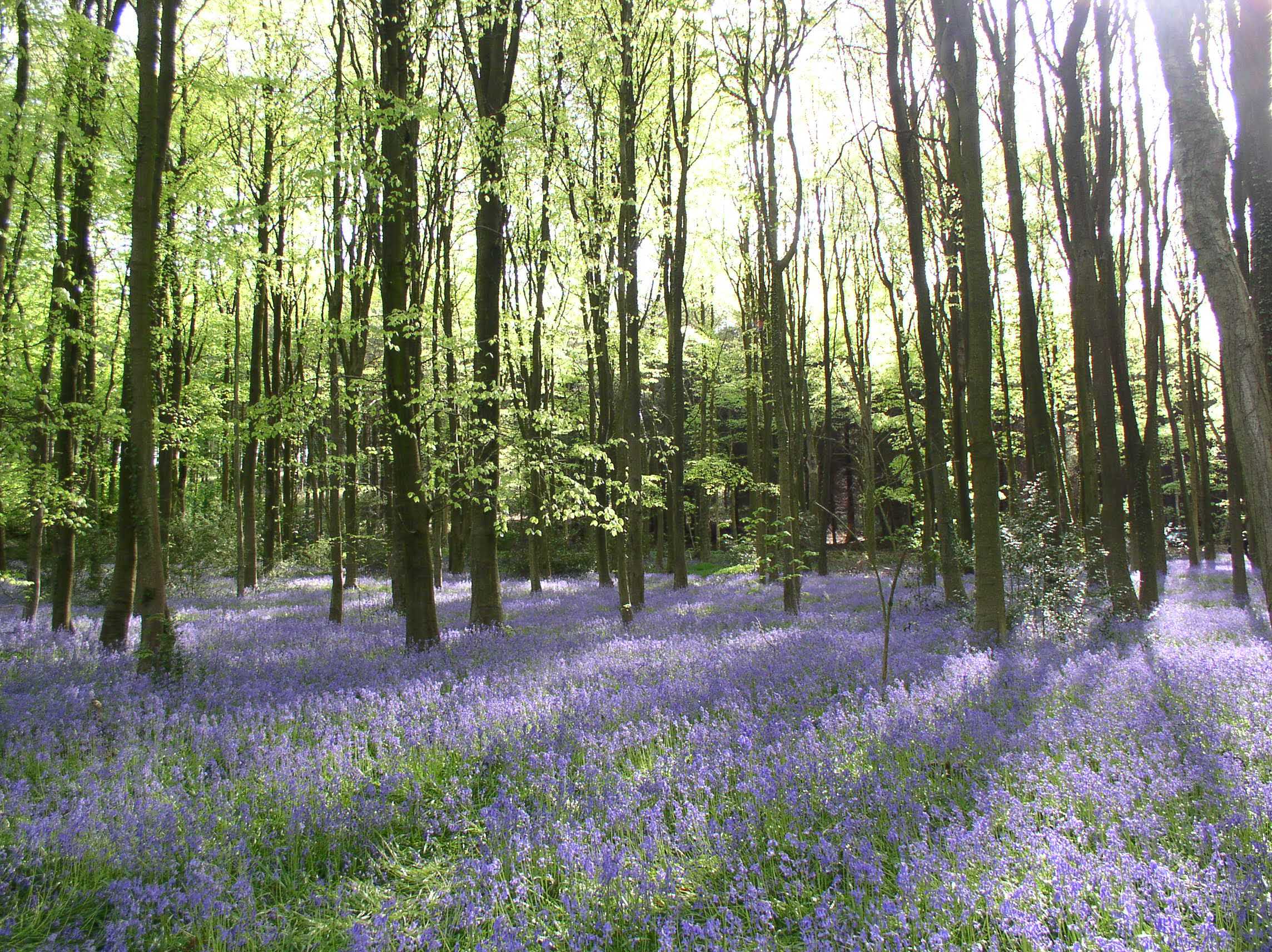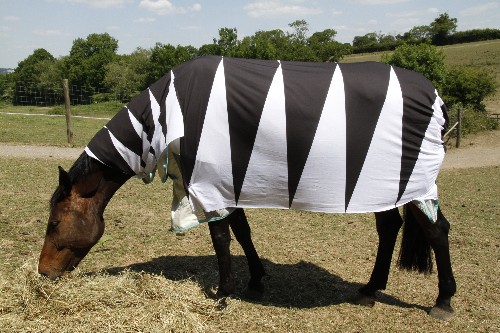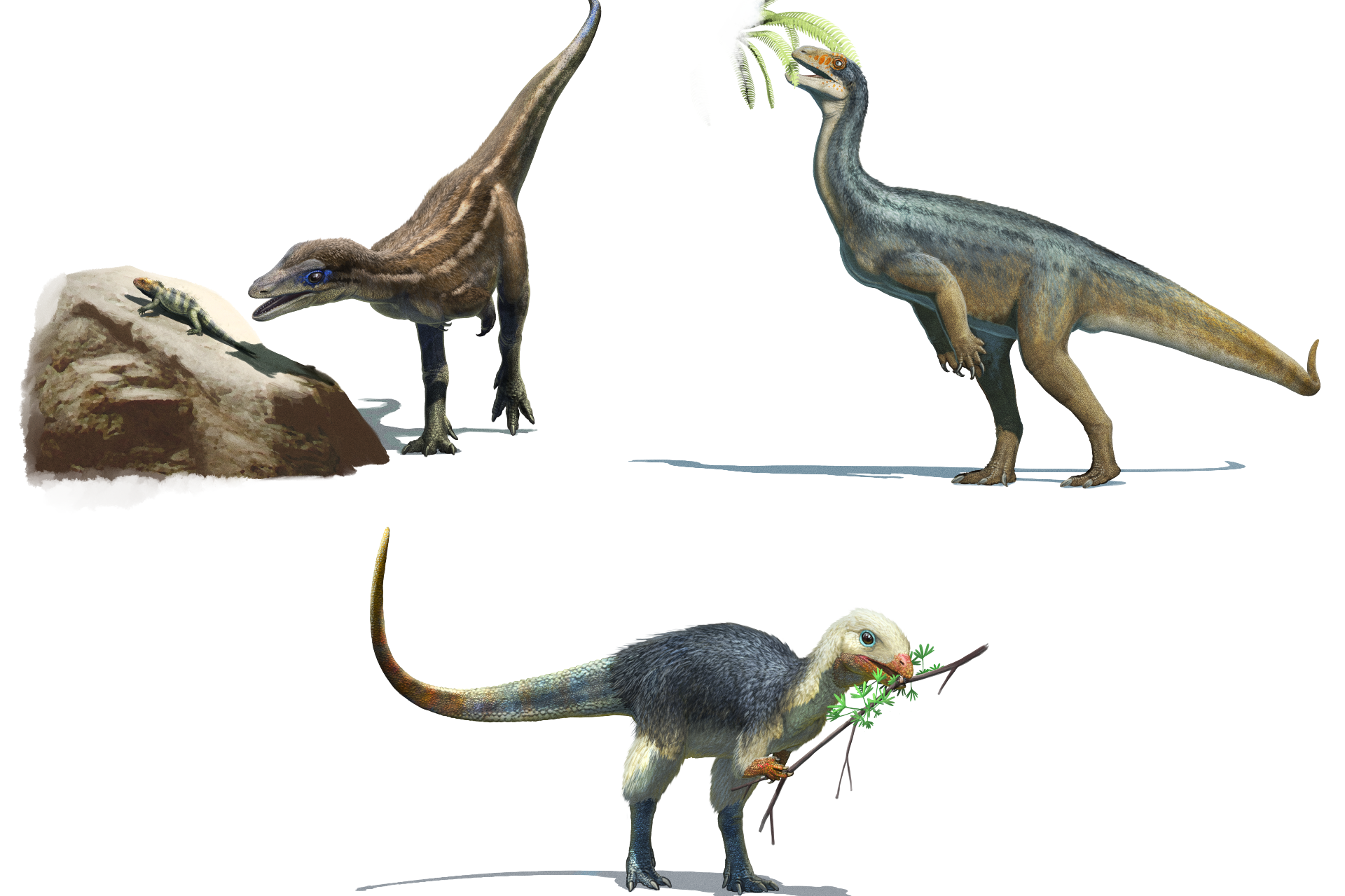News in 2023
- Increased threat of war enhances pup survival 16 November 2023 Animal offspring may survive better when their groups are in greater conflict with rival factions, research from the University of Bristol has shown for the first time.
- Tom Pitman Retirement 9 November 2023 Tom Pitman, our GroDome manager, has eventually decided to hang up his green labcoat and secateurs and head for his own potting shed, joining the community of the retired.
- Universal epigenetic clocks provide insights into why mammals are ‘born to die’ 7 November 2023 Benjamin Franklin famously stated ‘in this world nothing can be said to be certain, except death and taxes’. But why are we ‘born to die’ and what mechanisms underpin the gradual decline in biological functions (senescence) in living organisms, and ultimately their death? We are at an exciting point in ageing research: a Universal Mammalian Clock Chip has been developed using data on DNA methylation (DNAm) from a wide range of mammals and tissue types to predict the chronological age of any mammal species accurately from a single equation, also showing how DNAm changes in predictable ways over an animal’s life. Two new papers1,2 provide remarkable insights into ageing. The findings reveal great potential for estimating a mammal’s chronological age when it is not known, for understanding why some individuals age faster than expected for their chronological age, and for understanding factors affecting the large variation in the lifespans of different mammal species.
- Static electricity attracts ticks to hosts, scientists find 1 November 2023 Ticks can be attracted across air gaps several times larger than themselves by the static electricity that their hosts naturally accumulate, researchers at the University of Bristol have discovered.
- Warmer and murkier waters favour predators of guppies, study finds 27 July 2023 Changes in water conditions interact to affect how Trinidadian guppies protect themselves from predators, scientists at the University of Bristol have discovered.
- Butterfly species’ big brains adapted giving them a survival edge, study finds 27 July 2023 Heliconius butterflies’ brains grew as they adopted a novel foraging behaviour, scientists at the University of Bristol have found.
- Bats struggle during organic farming transition 27 July 2023 Bat activity falls as farms make the transition to organic agriculture, new research shows.
- Leading ecologist from the University of Bristol elected as Royal Society Fellow 12 May 2023 A University of Bristol academic who has provided insight into how networks of interactions between species impact the environment has been elected as a Fellow of the Royal Society.
- Animals best to supress individual personalities for group efficiency 5 May 2023 Social animals should limit individuality to conform with the behaviour of the group, a University of Bristol study has found.
- Mysterious underwater acoustic world of British ponds revealed in new study 25 April 2023 The previously hidden and diverse underwater acoustic world in British ponds has been revealed by a team of researchers at the University of Bristol.
- Researchers discover significant deep-sea coral reefs in Galápagos expedition 24 April 2023 Scientists from the University of Bristol are part of an expedition which has made a ground-breaking discovery of extensive, ancient deep-sea coral reefs within the Galápagos Marine Reserve (GMR).
- The diverse swimming techniques of the ancient reptiles that ruled the Mesozoic seas have been revealed for the first time by scientists at the University of Bristol. 18 April 2023 The diverse swimming techniques of the ancient reptiles that ruled the Mesozoic seas have been revealed for the first time by scientists at the University of Bristol.
- Small and simple key to evolution success of mammals 12 April 2023 Ancestors of modern mammals evolved into one of the most successful animal lineages by starting out small and simple, researchers have found.
- Earth’s first plants likely to have been branched, study finds 27 March 2023 A new discovery by scientists at the University of Bristol changes ideas about the origin of branching in plants.
- Sea temperatures control the distributions of European marine fish 10 March 2023 An analysis extending from southern Portugal to northern Norway highlights the importance of temperature in determining where fish species are found.
- Scientists identify 100 important questions facing plant science 7 March 2023 An international panel of scientists have identified 100 of the most important questions facing plant science. The international initiative has identified key research priorities and highlights the importance of diversity, collaboration, and funding for plant research to tackle climate change, the biodiversity crisis and sustainable food production.
- Experts have discovered how zebra stripes work 22 February 2023 Researchers at the University of Bristol have found why zebra fur is thinly striped and sharply outlined.
- Scientists discover what was on the menu of the first dinosaurs 1 February 2023 The earliest dinosaurs included carnivorous, omnivorous and herbivorous species, according to a team of University of Bristol palaeobiologists.
- Pheasants at risk on unfamiliar ground, study finds 1 February 2023 Pheasants are most likely to be killed by predators on unfamiliar ground, new research shows.
- Human-made noise impacts dolphins working together, reveals new study 1 February 2023 Dolphins working collaboratively are less successful in the presence of sound generated by humans, a University of Bristol-led team of researchers have shown.
- New biography of famous palaeontologist Mary Anning unearthed from University of Bristol archives 1 February 2023 A short biography of pioneering scientist Mary Anning, written in the final ten years of her life, has been made public for the very first time.
- ‘Veggie’ dinosaurs differed in how they ate their food 1 February 2023 Although most early dinosaurs were vegetarian, there were a surprising number of differences in the way that these animals tackled eating a plant-based diet, according to a new study by scientists from the Natural History Museum and the Universities of Bristol and Birmingham.
.jpg)
